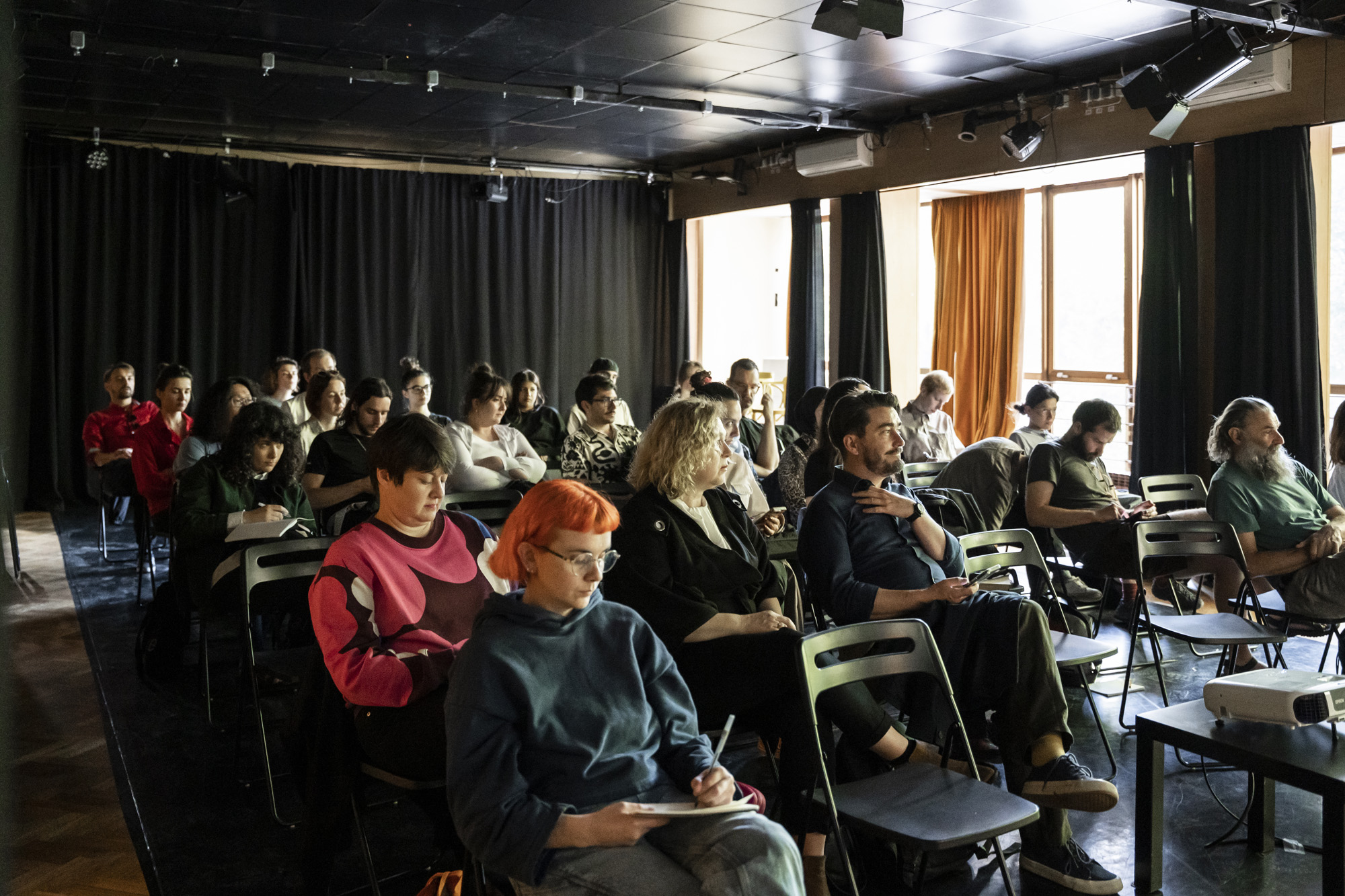WHW Akademija
May 17 and 18, 2024


For the 2024 WHW Akademija summer school, the Initiative was invited to join the professorial team to conduct a series of workshops and conversations for this year's cohort of artists. The program focused on rethinking and redeveloping notions of care and eco-social values, “with particular attention to strategies of repair, artistic ecologies, and collective learning”.
On May 17th, the participants engaged in a conversation with Elena Sorokina and artist Charwei Tsai. During the session, Tsai presented an excerpt of her video Hear Her Singing (2017) made in collaboration with Tibetan filmmaker Tsering Tashi Gyalthang. The video features members of the Refugee Women Drama Group, a vocal therapy workshop for women detainees and asylum seekers in the UK.
When asked about gestures of solidarity and care in her work, Tsai reflected on a recent trip to Nepal where she made clay pots with the local community. These pots, intended as an offering for the collective wellbeing, were passed along and sculpted by different people, removing any sense of individual authorship. Tsai also reflected on the freedom she feels when working with organic material, their return to the earth conveying a sense of trust applicable to collaborative human efforts.
The following day, Elena Sorokina and Natasa Petresin Bachelez hosted a ‘Charging station’ with activist Magdi Masaraa. The exercise was inspired by Saul Williams and Anisia Uzeyman’s intervention in the exhibition When Solidarity is Not a Metaphor presented at the 2024 Venice Biennale. During this session, participants were invited to hold a space for hope by reading poetry and texts by Ocean Vuong, Felix Gonzalez Torres, and Alessandra Pomarico, among others. Some participants also shared personal writings and stories. Magdi Masaraa then offered a presentation on his work and his Initiative Durmongaa. The day concluded with a convivial exchange between the activist and the participants.
Images: Sanja Bistričić Srića